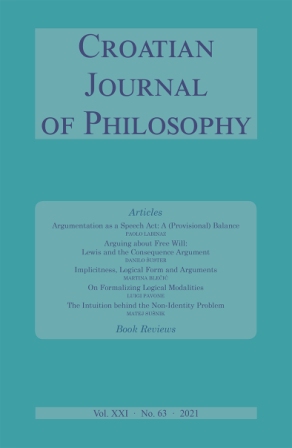Implicitness, Logical Form and Arguments
Implicitness, Logical Form and Arguments
Author(s): Martina BlečićSubject(s): Logic, Semantics, Pragmatics, Philosophy of Mind, Philosophy of Language
Published by: KruZak
Keywords: Logical form; impliciture; conversational implicatures; context;
Summary/Abstract: In the paper I suggest that a loose notion of logical form can be a useful tool for the understanding or evaluation of everyday language and the explicit and implicit content of communication. Reconciling ordinary language and logic provides formal guidelines for rational communication, giving strength and order to ordinary communication and content to logical schemas. The starting point of the paper is the idea that the bearers of logical form are not natural language sentences, but what we communicate with them, that is, their content in a particular context. On the basis of that idea, I propose that we can ascribe logical proprieties to what is communicated using ordinary language and suggest a continuum between semantic phenomena such as explicatures and pragmatic communicational strategies such as (particularized) conversational implicatures, which challenges the idea that an implicatum is completely separate from what is said. I believe that this continuum can be best explained by the notion of logical form, taken as a propriety of sentences relative to particular interpretations.
Journal: Croatian Journal of Philosophy
- Issue Year: XXI/2021
- Issue No: 63
- Page Range: 405-418
- Page Count: 14
- Language: English
- Content File-PDF

